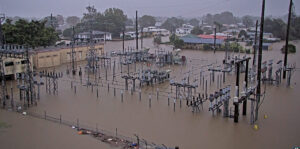It’s much easier to solve imaginary problems than real ones, which explains why the current Government is highly concerned about low levels of debt, and relaxed about high levels of greenhouse gas emissions. Since 1950 our national debt has fallen from 100 per cent to 14 per cent of GDP. Our greenhouse gas emissions have risen six-fold over the same time.
Bizarrely, while most politicians understand that current levels of debt are low, they are determined to focus our attention on what might happen in 40 years’ time. The long-run cost of ageing, the long-run consequences of small deficits, the impact of demographic change on labour force participation – if we care about future generations, then we must act now.
When it comes to climate change it seems the opposite is true. If our emissions and the population keep growing, and we double our coal exports, scientists say we will fundamentally change the climate in dangerous and unpredictable ways. But to those politicians, that’s not our problem. That’s a problem for future generations to solve.
Related documents
Between the Lines Newsletter
The biggest stories and the best analysis from the team at the Australia Institute, delivered to your inbox every fortnight.
You might also like
Fossil fuel subsidies
When governments subsidise fossil fuels—coal, gas, diesel, petrol—they not only waste public money, they also make climate change worse. Subsidies and tax breaks make fossil fuels cheaper, making it harder to switch to renewable energy and cleaner technologies. Ending fossil fuel subsidies is common sense and good policy.
Why a fossil fuel-free COP could put Australia’s bid over the edge
When the medical world hosts a conference on quitting smoking, they don’t invite Phillip Morris, or British American Tobacco along to help “be part of the solution”.
Climate crisis escalates cost-of-living pressures
A new report has found direct connections between the climate crisis and rising cost-of-living pressures. Failure to lower emissions now will only aggravate the crisis, with each moment of inaction compounding the pressure on households.



